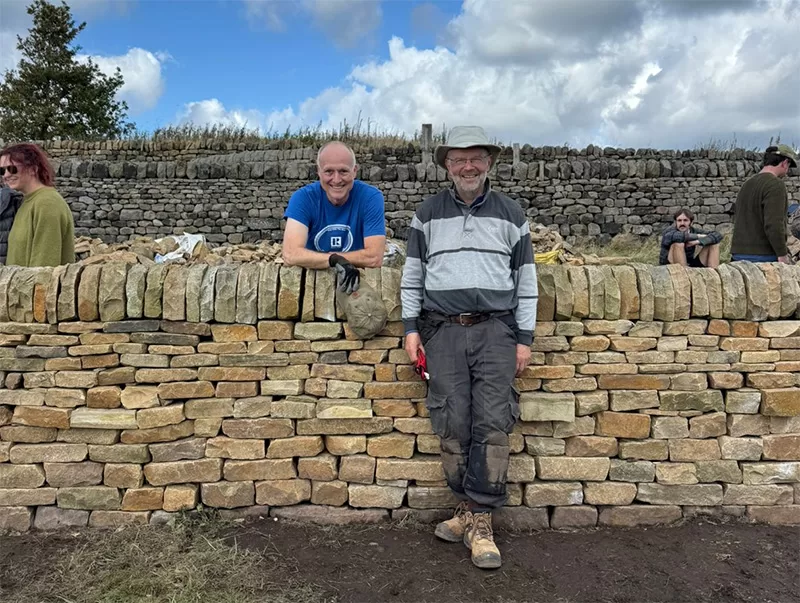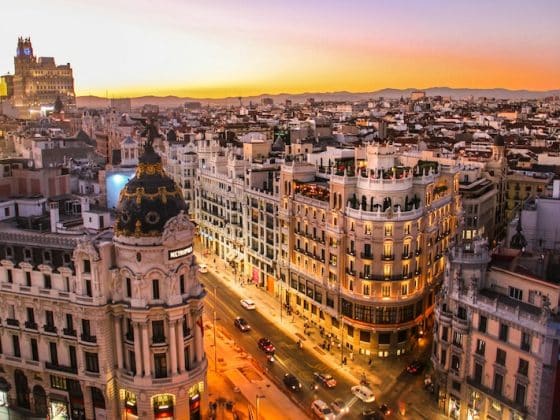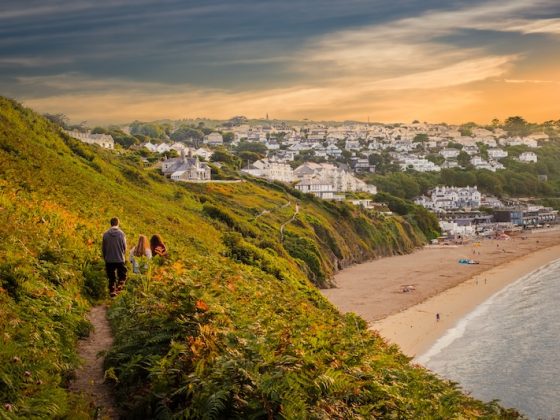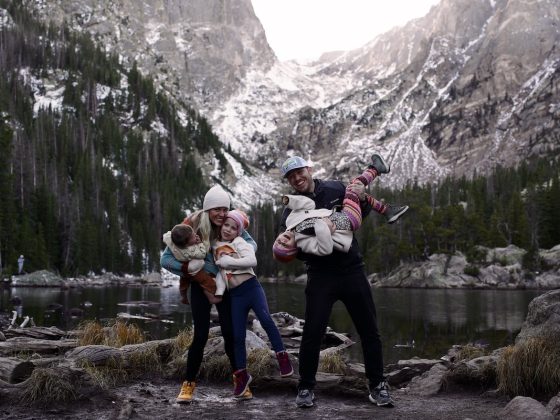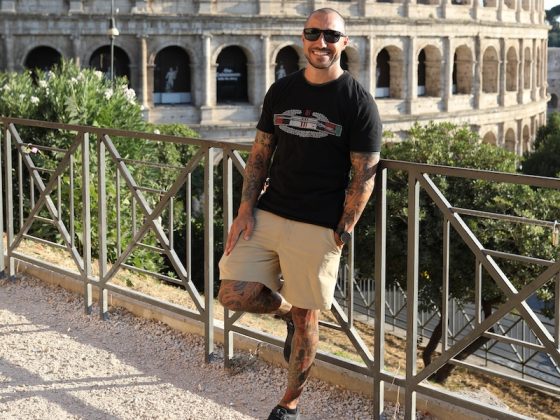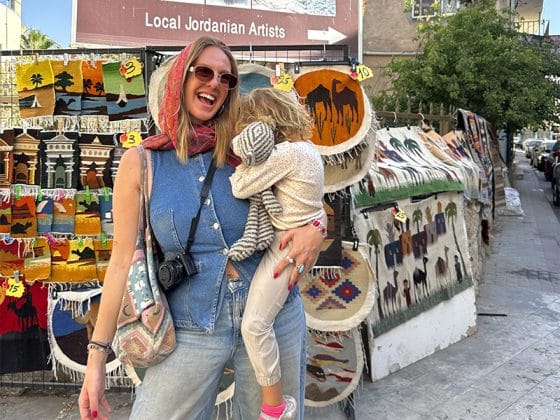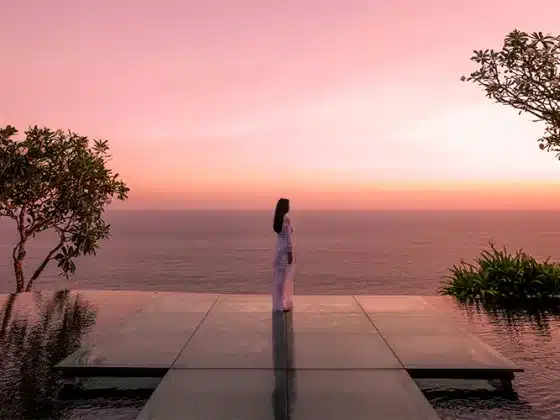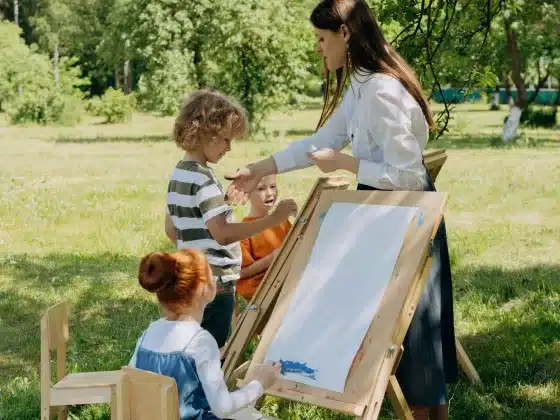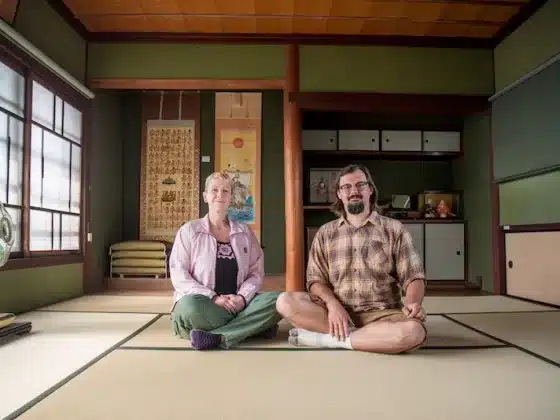It’s close to 3 a.m. in Virginia, and Mike Cobb is on the road again. In a few hours, he will board a flight to Panama for an international conference, with a side itinerary that feels very Mike: a stop at ECI Development’s TEAK plantation, bank and legal meetings, then back-to-back auditor interviews.
It’s an ordinary week for the CEO of ECI Development, except his mind keeps returning to something he did in England’s Yorkshire countryside: building a wall. Not metaphorically, but literally—a dry-stack stone wall; a lesson in focus, patience, and the kind of learning that leaves you changed.
What stands out with Mike isn’t motion for its own sake; it’s intention. He travels constantly, but he lands fully. He seeks the quiet disciplines of place—stone, soil, timber—and the communities they create. If there’s a thread that runs through his life, it’s curiosity turned into practice: learn the craft, meet the people, contribute something that lasts.
Mike, it’s the middle of the night, and you’re getting ready for yet another trip. What is waiting for you in Panama this time?
It’s going to be a packed week. I’ll be speaking at a conference and spending a few days at our TEAK plantation. We’ve just had the new electric kiln go online, and it’s working beautifully. It’s always satisfying to see a project that’s been years in the making finally perform exactly as it should. I’ll also be meeting my team and reviewing operations. It’s a full schedule, but the part I look forward to most is being outside, seeing the trees, and the progress firsthand.
Read more like this: A Magical Life in Panama
You’ve just come back from Yorkshire, where you spent a week learning to build dry-stack walls. That’s quite a contrast. How did that happen?
I had a week free between a conference in Spain and a wedding in France, and I wanted to use it for something different. My wife has always wanted a dry-stack wall built on our property back home, and I’d promised her I’d learn how to do it properly. So when I found a course up in Yorkshire, I thought, why not use the week to finally make good on that promise?
I’ve always liked working with my hands. My dad and I used to build stone retaining walls together when I was growing up in Pennsylvania, so there was an element of nostalgia to it, too. Right now, I build walls at my home in the Shenandoah Valley west of Washington, DC. While I’ve done quite a bit of dry-stack retaining walls in my life, a free-standing wall is a different animal. And I could not quite see how it could come together and be stable for 500 years. Therefore, a class was essential.
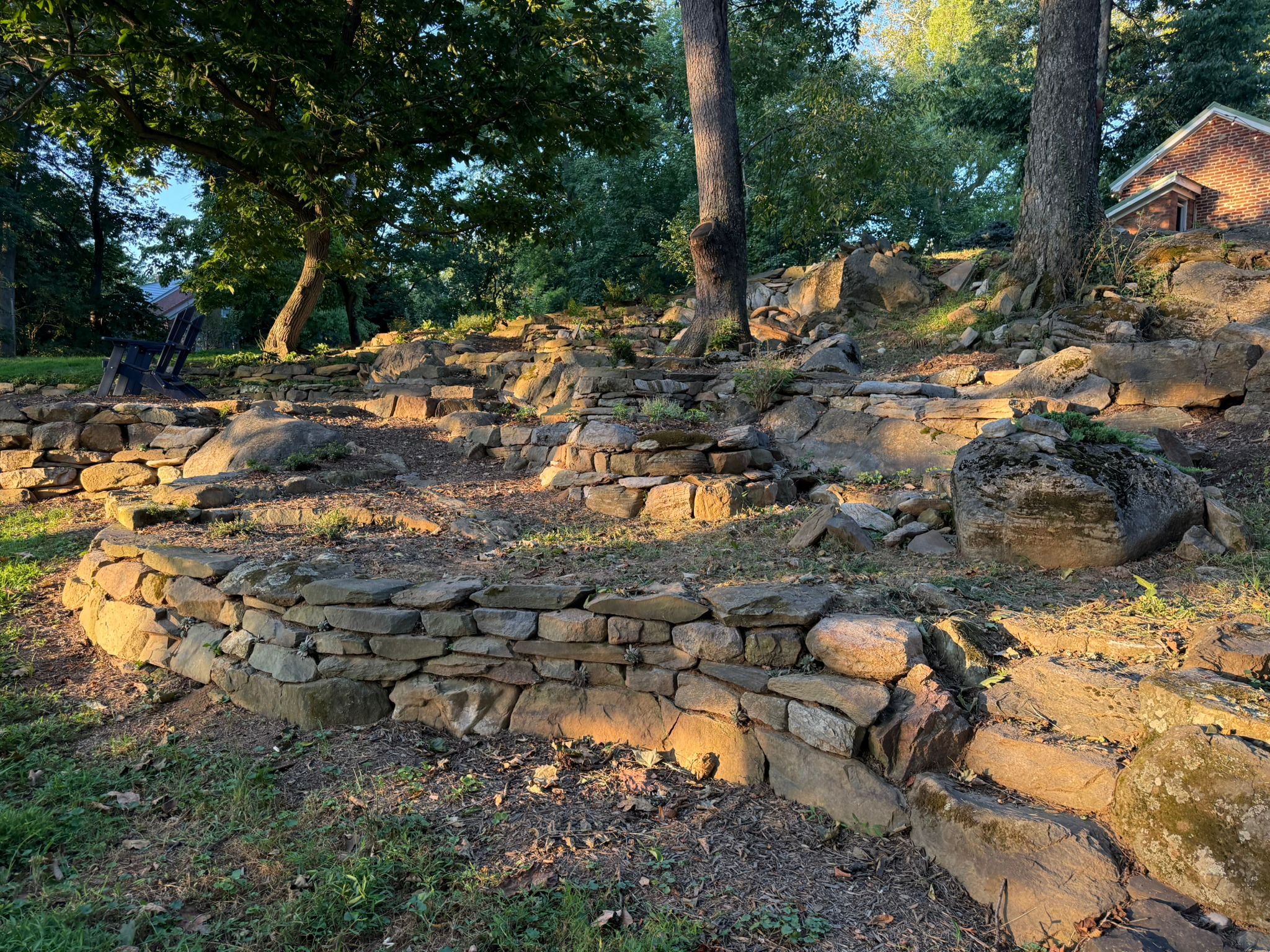
The first day in England was rough—cold, rain coming sideways, exactly how you imagine England to be! The kind of damp that soaks you through—but once we started, none of that mattered. We began by dismantling a wall that had collapsed. You learn a lot from taking things apart first. You can see exactly where it failed, where corners were cut. Then we started rebuilding, stone by stone, layer by layer.
The instructor explained that a dry-stack wall isn’t just one wall; it’s two, front and back, connected by tie-stones. It leans slightly inward for strength, and every piece has to touch at least three others. It’s deliberate, careful work. You start reading the stones—their weight, texture, and fit—and when you find the right one, it settles into place with this quiet click.
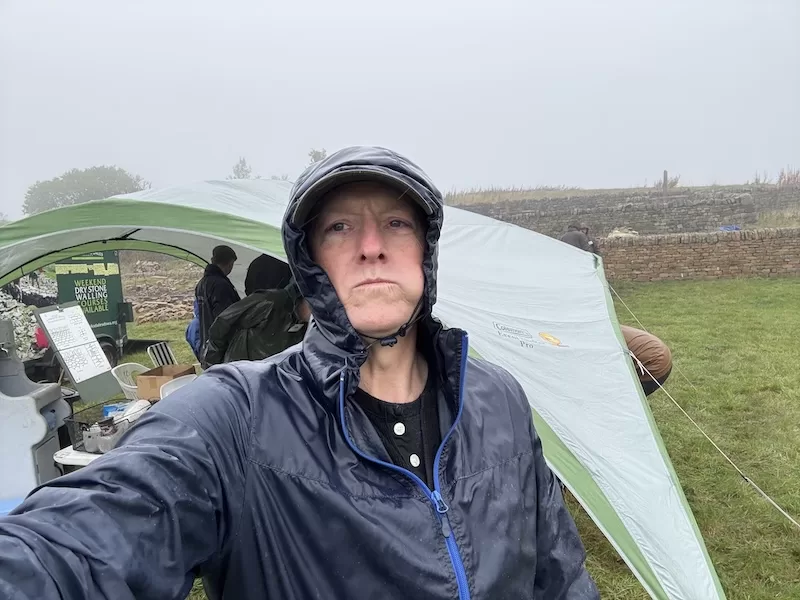
What did your days there actually look like?
I stayed in a small village outside Otley, about ten miles north of Leeds, where the course was held. My luggage was lost somewhere between Valencia and Manchester, and by the time I got to Leeds, Marks & Spencer had closed, so I had no lunch for the class. You’re supposed to bring your own, so I improvised — I used my Marriott status to sneak into the executive breakfast lounge, packed three breakfast sausages into a coffee cup, grabbed a bag of crisps, and borrowed a porcelain teacup for my tea. That was my lunch — sausages, crisps, and hot tea in the freezing Yorkshire rain.
The days started early and ran long. We’d be out there pulling down old walls and rebuilding them stone by stone. In the evenings, I’d warm up back in Leeds — one night I went to The Ivy for fish and chips, and another, I saw Downton Abbey at the cinema across from my hotel. My wife and daughters love the show, so it felt like a small connection to them from far away.
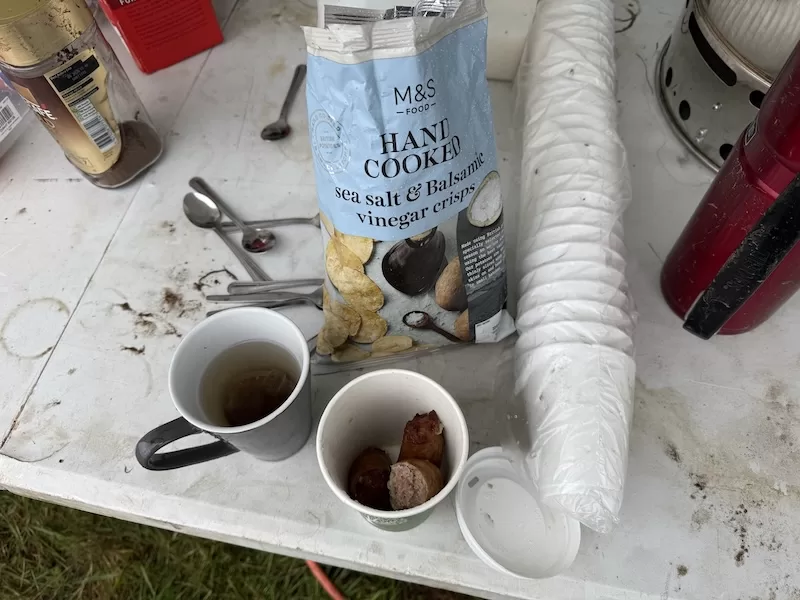
What did you take away from that experience?
Patience and focus. You can’t rush it. It’s not about forcing things to fit; it’s about paying attention and trusting the process. You start to see how every small decision matters. It’s a bit like meditation, really — hours go by and you don’t even notice because you’re so absorbed in the work.
There’s also a kind of humility in it. You’re working with natural materials that have their own shape and will. You can’t control them. You have to understand what’s in front of you and work with it. That lesson applies to just about everything else in life.
By the end of the week, my body definitely reminded me that I’m not twenty anymore — it was hard, physical work — but it felt good. The wall was solid, well-built, and it’ll still be standing long after I’m gone.
It sounds like the wall became something symbolic for you.
It did. I went there to learn a skill, but I came away with a lesson in how to live. Building that wall reminded me how important it is to slow down, to give things the time they need. Whether you’re building a wall or a company, the principles are the same: good foundations, balance, patience, and integrity. If you do those things right, the rest takes care of itself.
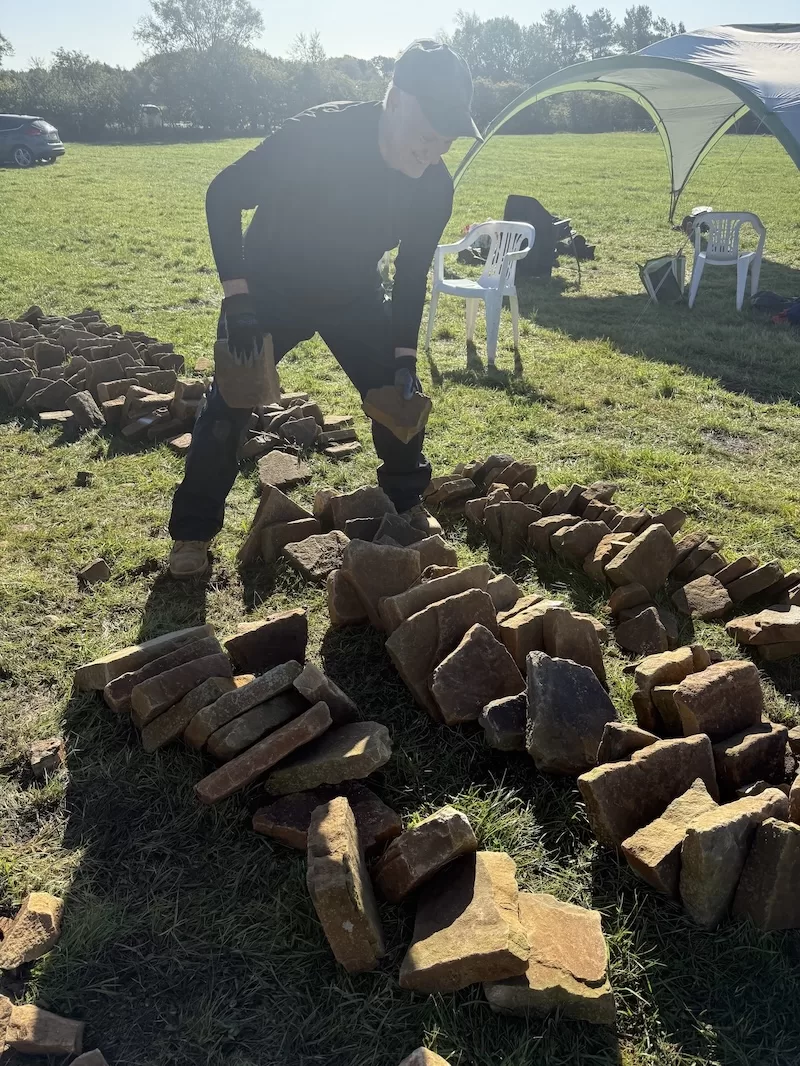
You’ve always seemed to approach life as a process of learning. Has that curiosity been a constant for you?
Absolutely. I’ve always been curious about how things work. I read a lot, and I learn best by doing. That’s why I take these kinds of courses or get involved in projects that are hands-on. Curiosity keeps life interesting. And it doesn’t have to be about business. It can be about learning a craft, understanding a culture, or even just watching how other people live. I think curiosity is what keeps people alive inside.
You mentioned that you and your wife also spent time cycling in southern France after that. Tell me about that trip.
We started in Carcassonne and cycled along the Canal du Midi, through small towns and open countryside. It was wonderful. We like trips that feel connected to the place, not polished or overdone. You’re out in the air, seeing the landscape change, stopping for coffee, talking to people, eating simple food. It’s the kind of travel that slows you down and makes you notice things again.
We’ve done trips like that before, and we always come home feeling reset. It’s a rhythm that reminds you what matters. You move at human speed. You experience life instead of just observing it.
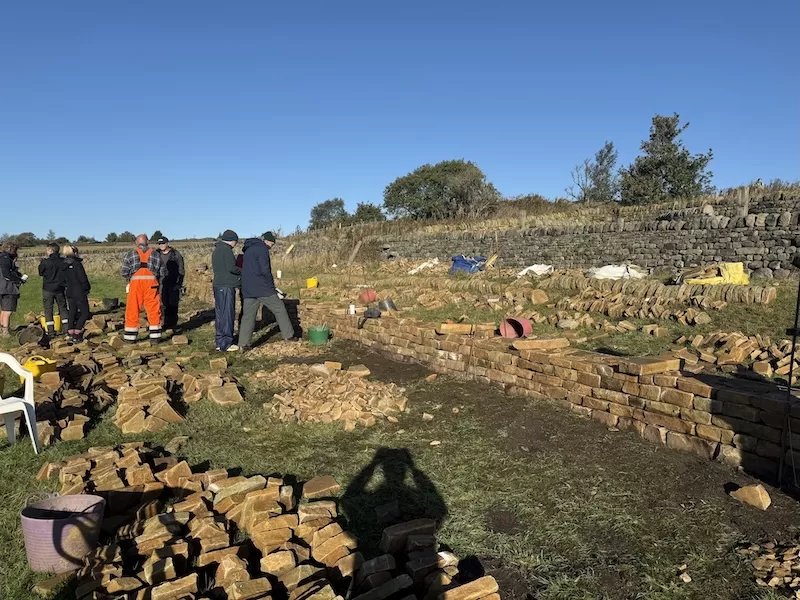
You move between so many worlds—construction sites, conferences, plantations. Do you ever think about what all these experiences mean together?
More and more. For me, it all connects. Whether I’m stacking stones or planning a new development, it comes down to the same philosophy: build things that last. Take care with the details. Respect the process.
I think that’s what I love most about our TEAK project. It’s a long-term commitment. You plant trees that take twenty-five years to mature. You’re not doing it for quick returns; you’re doing it because you believe in the future. It’s an act of patience and faith. It’s a reminder that some of the best results in life take time.
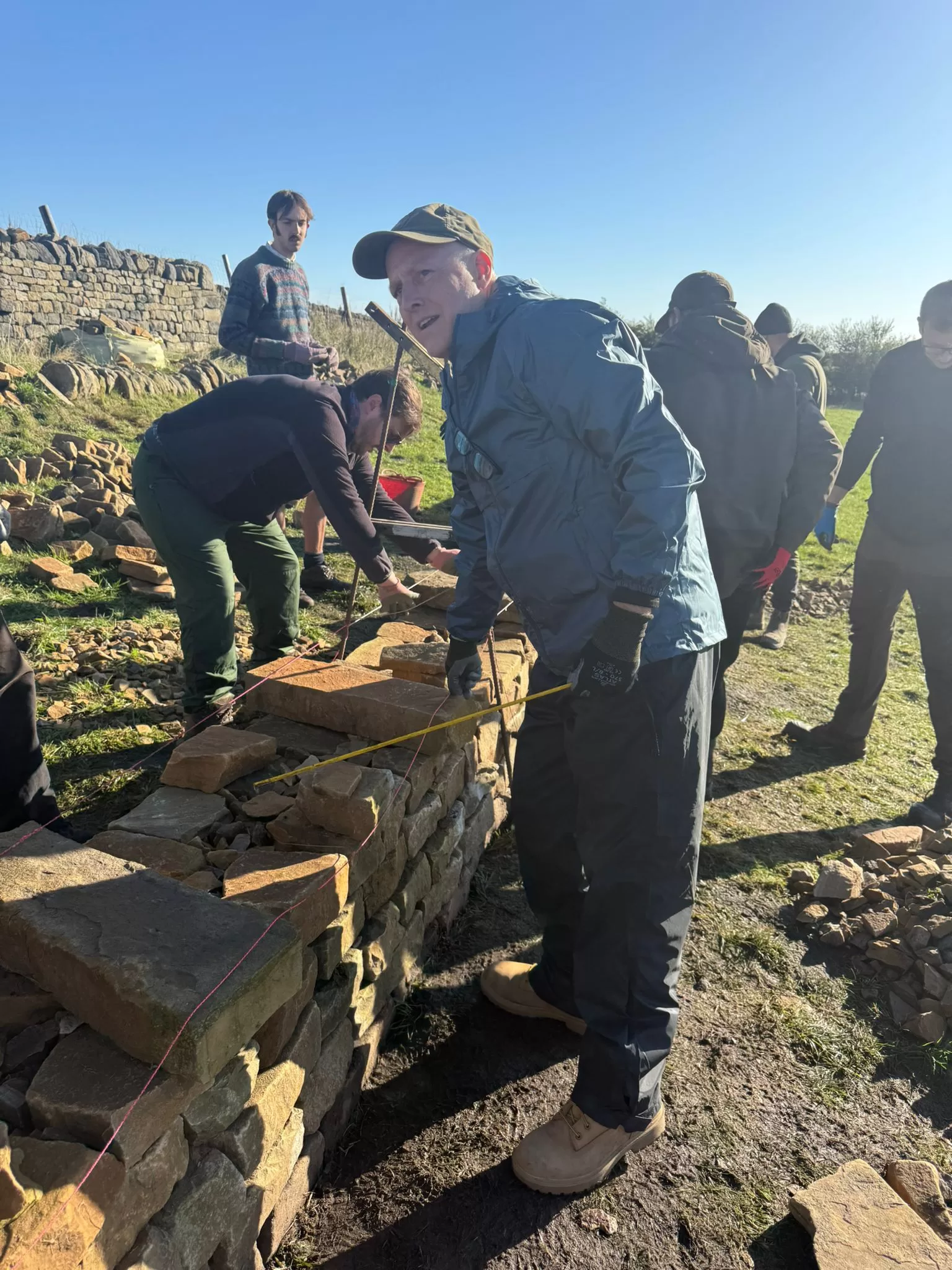
Does it feel rewarding to finally see TEAK reaching this stage?
Yes, it’s a generational project. You start with seedlings, and you nurture them year after year. It teaches discipline and consistency. There’s a rhythm to it that’s very grounding. When I’m there, I think about legacy—not just in a financial sense, but in terms of what we leave behind for others.
At the plantation, we’re finally seeing years of work come together. We’ve just had the new electric kiln go online, and it’s working beautifully. You never know if a system like that will perform as expected until it does.
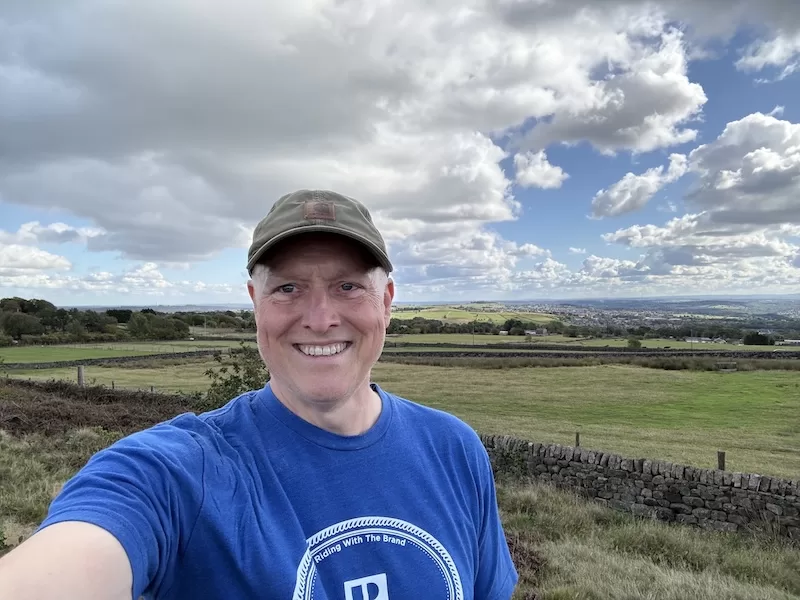
After everything you’ve built, what does travel mean to you now?
Every place has something to teach if you stay open to it. I like to see how people live, how they solve problems, and how things are made. Whether it’s walking through TEAK rows, working with stone in Yorkshire, or cycling through the French countryside, those moments remind me why I do what I do. Curiosity keeps life interesting. It keeps you from getting stuck in a routine.
If you’re curious about learning the craft yourself, this is where Mike trained: the Otley & Yorkshire Dales Branch of the Dry Stone Walling Association in northern England. You can find more about their courses at www.otleyyorksdalesdswa.org.
————-
Mike Cobb is the CEO and Co-Founder of ECI Development, a company creating sustainable communities for expats and second-home buyers across Latin America. With more than 25 years of experience in international real estate, he is also a conference speaker, investor educator, and passionate advocate for living and learning abroad with purpose. If you’d like to learn more about TEAK investment opportunities, visit teakhardwoods.com.
